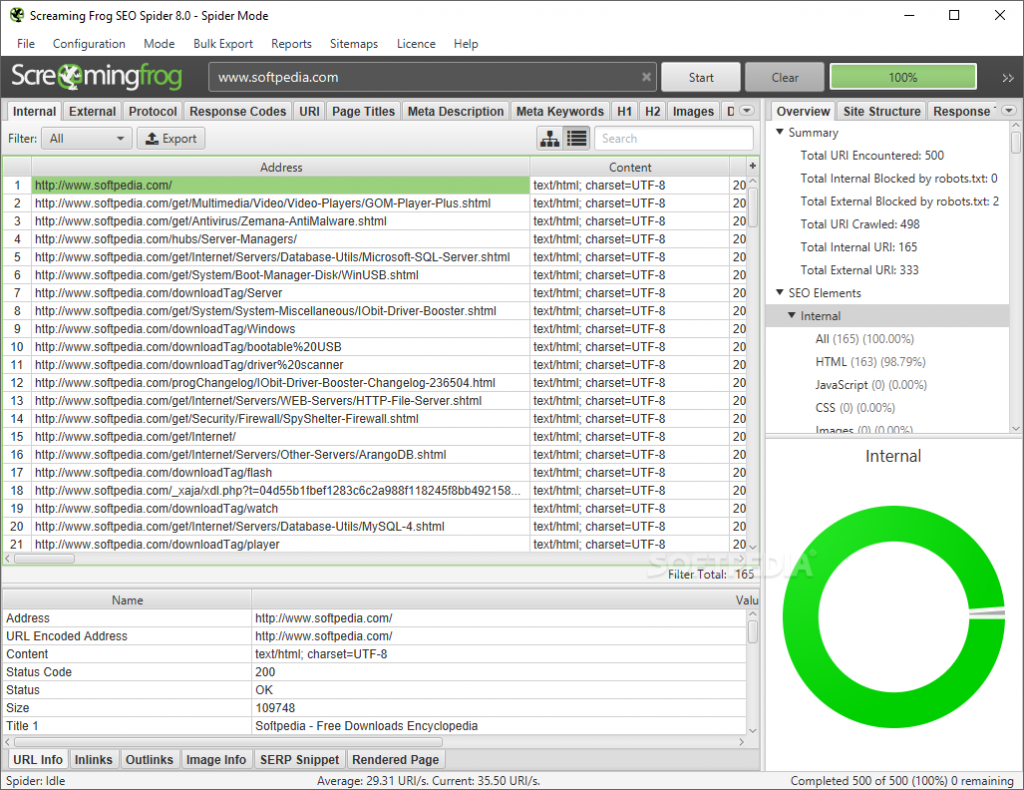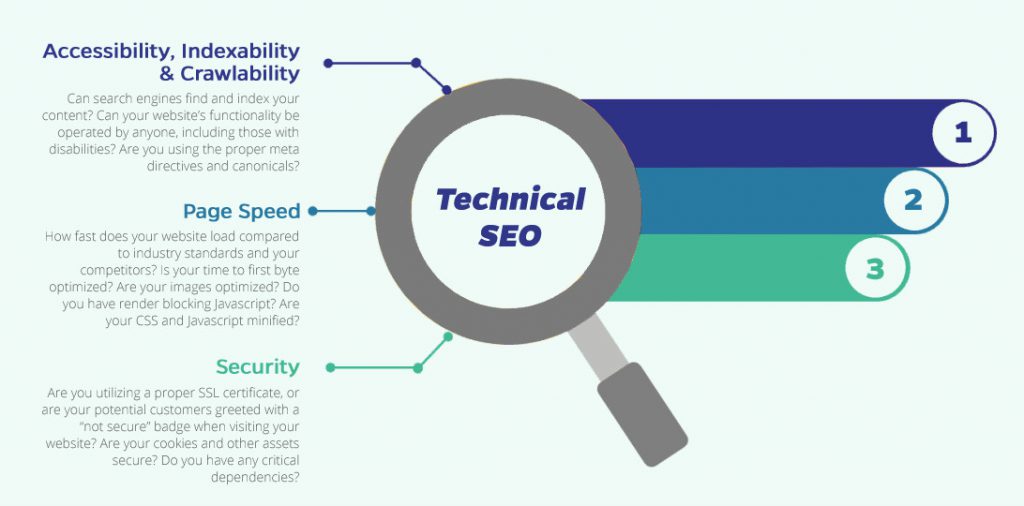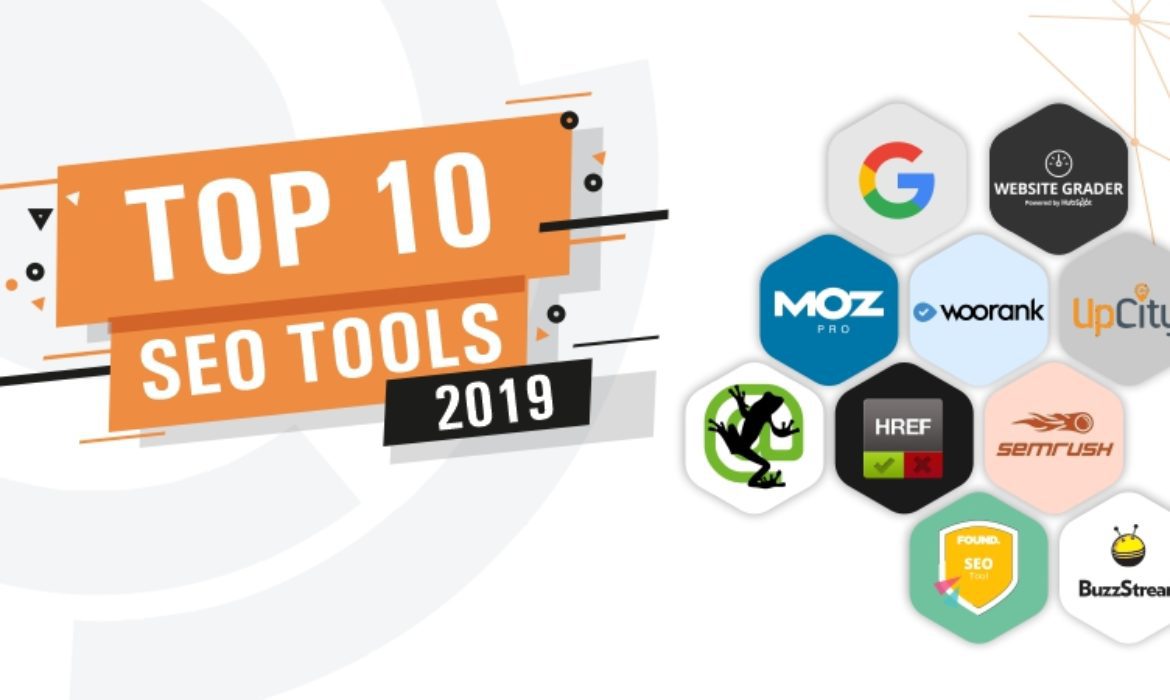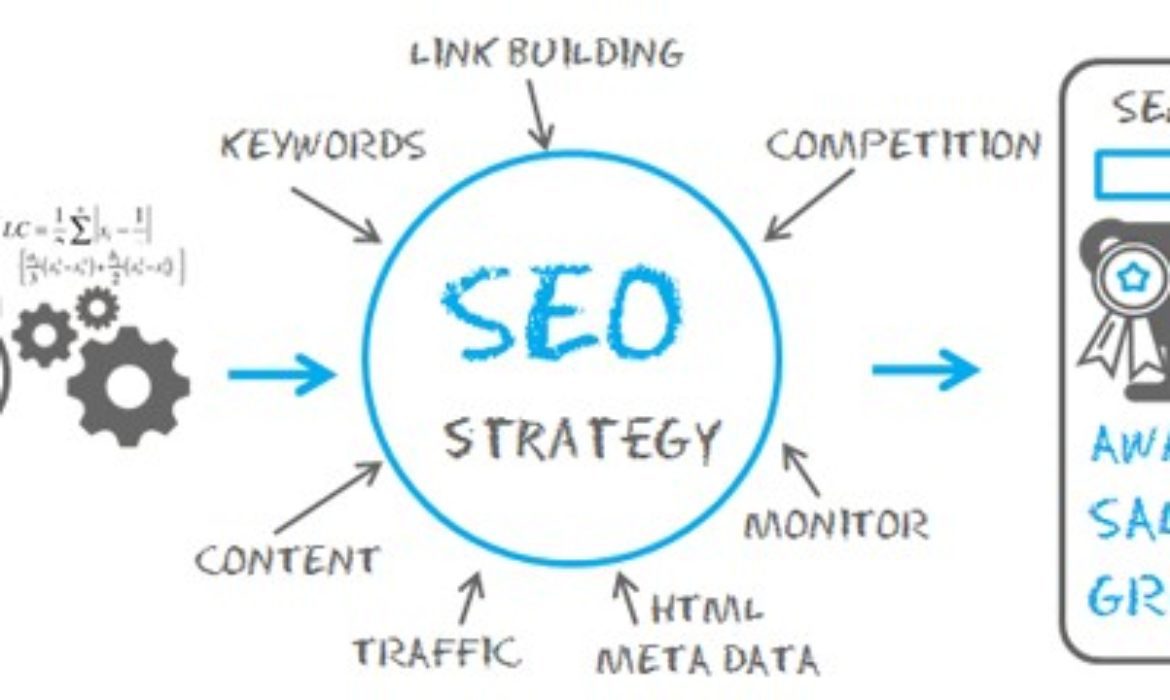10 Best SEO Tools and Platforms that You Must Start Using
Google’s Webmaster Tool (Search Console)
This is a free and most authentic tool that will help you to understand the way Google sees your site. This tool explains the fundamentals behind Google search.

Some of the features include the following;
- PageSpeed Insights, measures the speed of your website when running both on desktop and mobile devices.
- Google’s Fetch as Google is another feature that enables you to test and get a result on a particular URL to have an insight of how Google sees it. It helps in troubleshooting when you want to improve your website’s SEO performance.
Any SEO Agency will be smart to employ these tools for simplifying work.
HubSpot’s Website Grader
This is another website analysis tool that includes both free and paid features. To any SEO Services Agency, this tool will not be new to them since it has been released back in 2007 helping marketers uncover search engine optimization. This tool has been upgraded with a lot of features being added from time to time.

Website Grader includes the following free features;
- This tool helps to determine the availability of your website to both humans and bots. It takes in consideration of both page titles and meta tags.
- This feature looks for things like SSL certificate in order to make sure that your site is safe and authentic for contact information submissions.
If you think you can pay for more features, you will be able to get additional tools such as;
- HubSpot Blogging App that will help you to checklist the major keywords if you are a content creator.
- Page Performance App.
- Sources Report Tool.
- Keyword App.

Check My Links
Whether you are running an SEO Services Agency or you are working as an individual marketer, this is one great SEO tool that you should use when analyzing internal and external links on a webpage. It checks if the links are broken making it easier for a publisher or editor to correct the links before the page goes live.
It highlights broken links with a red color while the green color presents the good links.

Moz’s Pro Tools
This is a great paid SEO Website Analysis tool that gives you a free trial period of 30 days after a trial period you will be asked to pay a subscription plan that ranges from $99 per month.
This tool contains a collection of research features that will help you identify SEO opportunities, build reports, track growth and optimize your website.

One of the best features found in this toot is the Crawl Test tool. This is used to analyze up to 3,000 links on a particular given URL. You will receive an email with a well-detailed report on the data for each page the site links to.
UpCity’s SEO Report Card
This is a SEO tool that helps to analyze your website and determine how it ranks compared with your competitors.
It will provide a report that covers Rank analysis, Link Building, Website Accessibility, TrustMetrics, and Current Indexing.

Woorank
This is another website analysis tool that has a number of payment plans, and it will give you a 14 day trial period. It will help you analyze the performance of existing SEO initiatives, usability, social media and many more.
It will provide a report that covers eight sections including marketing checklist, SEO, Mobile, Usability, Technologies, Social, Local and visitors.

As someone who has worked in a SEO Agency, this tool helped me a lot and saved time decreasing my workload and making me focus on other things while waiting for my report after the tool had done its magic.
SEMrush
This is a great Keyword Researching platform that reports on the performance of the domain with their specific pages. It contains great toolkits, such as SEO toolkit.
You can use this tool to plug in a website page and see what keywords it’s ranking, monthly keywords search volumes’, what the page’s rank, and more.

It also lets you compare your website page performance with your competitors in terms of performance, backlinks analysis from other websites to your site, and many more.
Screaming Frog’s SEO Spider
This is a website analysis tool with two versions, a light version which is a free version with limitations and the paid plan version which has a lot of features. It is designed specifically for SEO researching allowing crawling in websites that you specify, and examining URLs for SEO troubleshooting.

Using this tool will make your work easy by reducing a lot of work and time that you would have spent on your website troubleshooting different problems.
Found’s SEO Audit Tool
This is a free tool that will help you to identify and solve common SEO errors on your site pages. It will help you rise above your competitors’ websites on search engine page results.
This tool has three main parts;
- Technical issues
- External link analysis
- Content issues

BuzzStream
This is a paid SEO tool that has a 14 days trial period, allowing you to manage outreach to people who can help in providing with inbound links to your pages. It will help you identify people for outreach based upon their market and how they interact across different social networks helping you to identify who will be the most receptive to your back-link request, hence boosting your ranking on Google.

Any SEO Service Agency out there will not miss these 10 SEO tools in their daily analysis; you should do it too and see how they work. I assure you that with these tools you will improve your website performance, ranking, and traffic.
Key SEO factors you will need to understand when launching a new website
Every person would like to set up a website based on SEO techniques but the bad news is that SEO is not an easy thing to do. Another problem with it is that it is not a onetime thing that you can just set once and then let it run on its own. With a lot of information available online, it is very difficult to know where to begin.
The main goal of creating a website is to drive traffic to your page that will eventually turn into clients. This can also be achieved via PPC campaigns that that can be created by a PPC Advertising Agency. These agencies will drive the targeted audience to your page while you have to pay for every click that they manage to attract to your page.
In this article we are going to look at 5 key SEO factors you will need to understand when launching a new website.
1. Setup your website for SEO

To earn a lot of traffic, you will need to set up your website for SEO. Setting your website for SEO does not mean changing the way your website interface. There are a lot of tools that will help you in doing this and most of them are free to use. With the help of these tools, you can get data and decide what to do with it. One of the tools you can start with is Google Analytics and using Google and Bing Search engines to see what they make of your site.
2. Researching for keywords
Searching on online search consoles take advantage of keywords, users use specific words or phrases to search for particular information. An SEO campaign starts with keywords and knowing what your targeted audience uses while searching for the products and services you provide is very important. You have to use tools to research and come up with words that people use in search engines.

When you have a list of keywords, you can use them to improve your content. This will also help you when you launch advertising campaigns by using the right keywords in your ads. The best way to make a campaign that is easy to analyze its results is to use PPC Ads. This can be done using PPC agencies that provide a lot of Digital marketing services out there. With a minimal budget, you can seek help from them to search keywords for you and set up an advertising campaign.
3. On-page SEO principles

On-page optimization is the best and easy way of SEO improvement that you can control. This technique allows your page to attract more traffic by being more relevant to keywords that are being searched. The main goal is to create a page that will provide information and answer questions for the targeted audience. So you should focus on being relevant and as supportive as you can.
If you have hired a PPC Advertising Agency, they should use relevant keywords that match with your landing page. The content within the page should contain information which the targeted audience is looking for otherwise they will bounce back. In order to optimize your page, you must consider the following;
- Create relevant title tags.
- Use of better meta descriptions.
- Have sensible URLs.
- Good arrangement of images.
- Create attractive headings.
- Improve your content.
4. Technical SEO

This part involves improving the non-content part of your website. This is the part that visitors do not see but it affects the way they interact and makes decisions when they visit your website.
This involves how a website performs, and how search engines are able to read (crawl) and index your pages. It is a foundation that holds the good work that you put into creating your website.
5. Steps to earning links
Setting and checking the links is very important due to the fact that, links are the connecting paths of the internet, they act as bridges that connect one site to another site. In addition, a link that directs one site to other acts as a citation that a target site is helpful and useful in some way. Search engines see this as an authority sign.

There are a lot of techniques that you can use to build your links based on the type of website. Be careful not to create spam links since Google’s crack-down will crash spam links.
Here some major steps that will guide you when building your links
- Make a research on who likes your website.
- Make a research to find out your competitors’ back-links.
- Compile or design your assets.
- Create a strategic link for earning plans.
Basing on the above tips whether you’re are launching a new website or updating your current website if you follow the steps mentioned you will be able to set up a website that will convert your audience into earnings. Make sure to use the above tips even if you want to hire an agency by choosing one among the many PPC Agencies available out there.
Google Enlightens the Fact That Which Pages Should Be Cast-off
John Mueller from Google has answered questions about how to identify pages to remove or block. He mainly clarified that even the low traffic pages are okay but low-quality ones are not.
In a Google Webmaster Hangout, Google’s John Mueller answered. Which low traffic pages to no index and which ones to not concerned about.
Are These Low Traffic Pages Unsafe?

It’s a million-dollar question that it’s better to remove the pages that are performing low in their index area. Low-quality pages are used to attract less audience. That is what makes the page harmful for a site or company. Google suggests removing the pages that have low-quality content and maybe no indexing, those pages should remove immediately.
That’s what the major concern and query John Mueller answered about.
This is the Question Being Asked to Him:
“We’re publishing news and articles.
For example, we have 100 new articles every day and ten of them give us 95% of the organic search traffic. Another 90 go nowhere.
We’re afraid that Google can decide our website is interesting only for 10%.
There’s an idea to hide some boring local news under a no-index tag to make the overall quality of all publishing content better.
What do you think?”
What Mueller Said:
“In general, we do look at the content on a per-page basis.
And we also try to understand the site on an overall basis, to understand how well is this site working, is this something that users appreciate. If everything is essentially working the way that it should be working.
So it’s not completely out of the question to think about all of your content and think about what you really want to have indexed.”
Now Mueller attentions on news sites.
He states that “traffic isn’t necessarily the metric to use for judging whether a news web page is a low quality.”

What Mueller Said:
“But especially with a news website, it seems pretty normal that you’d have a lot of articles that are interesting for a short period of time, that is perhaps more of a snapshot from a day to day basis for a local area.”
And it’s kind of normal that they don’t become big, popular stories on your website.
“So from that point of view, I wouldn’t necessarily call those articles low-quality articles, for example.”
He even highlighted an issue that Google used to remove content that is breaking, hard to read, manipulative, and majorly targeting the low audience. Poorly structured content will lead to harmful effects on your site.
Does Poor and Good Content Will Down Your Site Traffic?

Even to a question that if sites contain a mixture of bad and good content what perspectives would be in the line. In that regard he said that;
“On the other hand, if you’re publishing articles from … hundreds of different authors and they’re from the varying quality. And some of them are really bad, they’re kind of hard to read, they’re structured in a bad way, and their English is broken.
And some of them are really high-quality pieces of art, almost that you’re providing. Then creating that kind of a mix on a website makes it really hard for Google. And for users to understand that actually, you do have a lot of gems on your website…
So that’s the situation where I would go in and say, we need to provide some kind of quality filtering. Or some kind of quality bar ahead of time so that users. Google can recognize, this is really what I want to be known for.”
Concerns relative to publishing a mixture of content make Google doomy as well. Because Google will predict what sort of agency you’re in and what type of content you’re writing for.
Content matters? Yes!
Content matters because it’s a fact that many companies are using it as a frontline weapon to grab a huge audience. Google as a search engine will publish the content on the basis that they are working with these people and that’s what Mueller has added in his statement. He stated that;
“And these are all things, maybe user-submitted content, that is something we’re publishing because we’re working with these people. But it’s not what we want to be known for.
Then that’s the situation where you might say, maybe I’ll put no index on these, or maybe I’ll initially put no index on these until I see that actually, they’re doing really well.
So for that, I would see it making sense that you provide some kind of quality filtering.
Reasons:
But if it’s a news website, where… by definition, you have a variety of different articles, they’re all well-written, they’re reasonable, just the topics aren’t that interesting for the long run, that’s kind of normal.
That’s not something where I’d say you need to block that from being indexed. Because it’s not low-quality content. It’s just less popular content.”

If a page does not receive a high-level targeted audience, there is a moment at which it is no longer relevant. It does not mean they have low quality. There can be a mixture of things that will lead to less traffic on the page and they might be following;
- The webpage information and resources are outdated and not up-to-date.
- Web pages do not look good or friendly to use.
- Web pages are covering domains that are not on a popular or on-trend scale.
So, the facts and figures remain unusual if we do not follow the measures given. And advised by seniors or authorities. Google as a search engine will not hesitate to remove any index. And poor quality content will make a bad point on your site’s reputation. That’s what exactly you will not want to see.





